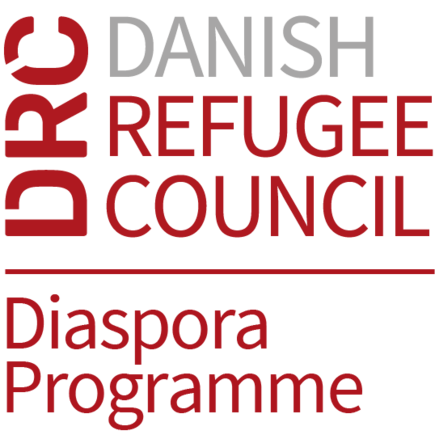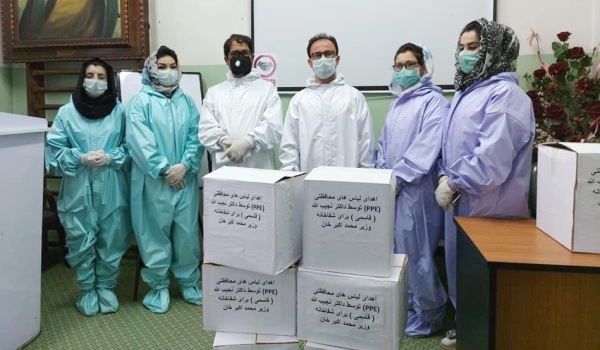Amidst increasing hope for achieving peace in Afghanistan after forty years of war, the spread of COVID-19 has paralyzed the Afghan government system to provide services to the Afghan people during the pandemic. The number of infected people with the virus has reached to 33,190 as of 7th July from which 898 have lost their lives to the virus. Afghanistan already suffers from under-performed healthcare system, poor water sanitation and infrastructure, food insecurity, rampant corruption and ongoing insurgency. The spread of the virus has undermined the ability of the Afghan government to cope against this pandemic since its first case was confirmed on 24 February in western Herat province. Since then, the outbreak of Covid-19 is likely to have a long-lasting economic and social impact on the lives of the Afghan people.
In the month of May, Afghanistan recorded 684% increase of the infection that put millions of Afghans under extreme pressure. To evaluate the impact of coronavirus on people’s lives and to seek opportunities for support, the VIDC organized a virtual conference on 4 June in cooperation with the Danish Refugee Council (DRC). The online event was not only to discuss the challenges that the virus has created for Afghanistan but also investigate how the Afghan diaspora in Europe could help to reduce the negative impact of the virus. Suraya Pakzad, the director of Voice of Women Organization and an internationally recognized women’s rights advocate in Herat province, Usman Sharifi, a medical doctor and text journalist with Agence France Press (AFP) in Kabul and Abdullah Mohammadi from the Mixed Migration Center - Asia Region were the main speakers to the first part of the virtual conference to provide information about the corona-related challenges. The second part of the conference was devoted to the Afghan diaspora in Europe. In particular, the question of how the diaspora can provide support in the medical sector and in empowering women was addressed.
The threats of COVID-19
Afghanistan face a multi-layered and multi-dimensional crisis from decades-long war, poverty, gender-based violence, child marriages, forced marriage and displacement. COVID-19 has added to the miseries of the Afghan people since its outbreak in Afghanistan in February.
COVID-19 has hit Afghanistan very hard since the first case was reported in western Herat province on 24th February. The healthcare system has been overwhelmed and the country has run out of testing kits. The real number of infected people in Afghanistan could be much higher than what the Afghan government has announced, explained Usman Sharifi.
“Afghanistan is expected to experience its one of the worse years since 2001 because the numbers in cases are getting higher and there will be more death in the future, violence continues and economy is getting worse,” Sharifi said.
COVID-19 as a global crisis has challenged Afghanistan’s ability to provide services for its people due to the “massive poverty, lack of healthcare facilities and an ongoing war between the Afghan government and the Taliban,” Sharifi said. As the virus spread in the neighboring Iran and Pakistan, many Afghan refugees were either deported or returned to Afghanistan to escape being infected. During the months of April and May, approximately 250,000 Afghans returned from neighboring countries who did not receive any primary healthcare services or assistance with “coping against poverty, social stigma and discrimination,” said Mixed Migration Center – Asia Region Coordinator, Abdullah Mohammadi who was also one of the speakers in the first part of the online discussion. The increased number of returnees and their mobility to various provinces increased the fear of transmission and spread of the virus.
The Afghan government was quick to declare emergency situation followed by lockdown of Herat province when the first case of the virus was detected in returning refugee settlement in western Afghanistan. The lockdown, however, was less effective when it comes to containing the virus due to combination of factors.
First, the general population did not take COVID-19 seriously either due to disbelief of the seriousness of the virus. Second, more than 54% of Afghans live below the poverty line and this has slightly increased during the pandemic, explained Sharifi. Many Afghans survival depend on daily labor jobs and the food prices have gone up. “Afghans have to choose between the risk of getting infected or provide food for their families,” said Sharifi. These factors have contributed to expansion and explosion of the virus throughout the country in short span of time. According to Osman Sharifi, the mortality rate was low between 1-2 percent but there was fear more people would die because of the poor healthcare system. The peak of the virus in Afghanistan could be July and if not managed well, it would turn to another humanitarian catastrophe.
COVID-19 pandemic and domestic violence
“Living a normal life in Afghanistan remains a dream for so many Afghan people specially women and children who are the most vulnerable group of people during every war and crisis,” explained Suraya Pakzad, the director of Voice of Women Organization. The COVID-19 has affected the Afghan women in so many different ways. The lockdown not only increased domestic violence against women but exposed women to more economical and financial challenges. Many women lost their jobs during the pandemic but they still have to struggle and support their families. It is even more difficult for female-headed households in Afghanistan especially for widows who don’t have social and financial support.
Domestic violence did not begin during the pandemic rather decades-long war and massive poverty were the real causes of it, said Pakzad. The number of domestic violence against women in Afghanistan has increased during the COVID-19 crisis. Ms. Pakzad she was particularly concerned about the reports of domestic violence which are not made public. The lockdown has made women more susceptible to domestic violence because they would not be able to reach safe houses which Pakzad has established to support women. Suraya Pakzad warned that lack of medical equipment and staff in health facilities and women shelters would put women’s lives more in danger. According to Pakzad, some families were forced to marry their very young daughters off to save the rest of the family. Both Sharifi and Pakzad were concerned about the level of corruption in the Afghan government which has caused mismanagement and disappearance of aids by international donors that were allocated to fight the pandemic.
“Due to lack of medical equipment, more than 70 percent of medical staff are either infected or not present in hospitals. Officially, 400 medical doctors have been infected and 130 of health workers have died in the last two months,” Usman Sharifi said.
Role of Afghan diaspora organizations in Europe
The second part of virtual conference focused on the role of Afghan diaspora organizations in Europe on how they could contribute in fighting the pandemic. KEIHAN Foundation, the Medical Committee Afghanistan Netherlands: MCAN in the Netherlands and the Afghan Women's Association (Afghanischer Frauenverein, AFV e.V.) in Germany and AKIS - Afghan Cultural Association in Austria were the main speakers who provided different kinds of assistance to Afghanistan during the pandemic.
The KEIHAN Foundation has implemented a campaign to support medical staff in Afghanistan: Save Medics In Afghanistan, while MCAN has established a digital platform between doctors in the Netherlands and Afghanistan to inform about the latest findings in the medical fight against the effects of corona infections. AFV e.V. has organized a Corona emergency relief action for about 2.000 needy people at the Ghaibi Baba refugee camp in Kabul and AKIS has conducted a support campaign for poor families in the Corona Pandemic in Afghanistan in cooperation with the Austrian NGO "Jugend Eine Welt". All these support programmes will be continued over the summer by the diaspora organizations. The speakers also made a number of recommendations to the international community and called for joint action during the pandemic in Afghanistan. The Corona crisis in Afghanistan should not to be forgotten.



